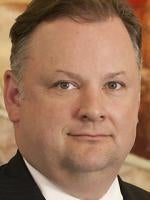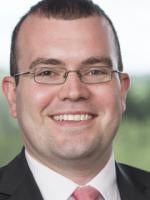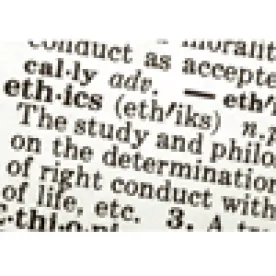On April 26, 2016, a sharply divided New Jersey Supreme Court held that attorneys may be liable for counsel fees if they are found to have intentionally breached their fiduciary duty to non-clients. In the matter of Innes v. Marzano-Lesnevich (A-16-14), the Court expanded the scope of New Jersey’s legal malpractice fee-shifting doctrine originally set forth inSaffer v. Willoughby, 143 N.J. 256 (1996) (holding that attorneys may be liable for counsel fees if their clients were successful in legal malpractice actions).
Critically, Innes does expressly limit the expansion of the fee-shifting doctrine to circumstances in which an attorney has intentionally breached a fiduciary duty to non-clients. In this regard, the Supreme Court remanded the case back to the trial court for a determination of this negligent versus intentional breach of the fiduciary duty. The Supreme Court wrote:
We refine our tightly circumscribed exception to New Jersey's general rule against awarding counsel fees to prevailing parties and hold that, because defendants were acting in a fiduciary capacity as trustees and escrow agents for [both parties], if they intentionally breached the fiduciary obligation to [a non-client], defendants can be held liable for counsel fees.
Going forward, in legal malpractice actions involving non-clients, a threshold determination of intentional misconduct will be necessary in order to award attorneys’ fees to non-clients. While this extension of the fee-shifting doctrine is limited in scope, it opens to the door to further expansion in the future.
Analysis
In 1995, the New Jersey Supreme Court first definitively held that attorneys may be liable for legal malpractice claims brought by non-clients. Petrillo v. Bachenberg, 139 N.J. 472, 479 (1995). Since that time, the courts have seen a substantial rise in legal malpractice suits brought by non-clients. Now that non-clients are permitted to pursue attorneys’ fees, defendants should be aware of the potential for a rise in claims lacking true merit due to the possibility that attorneys’ fees may be available.
The New Jersey Supreme Court in Innes reiterated that they have never held that a non-client is entitled to a fee-shifting award for an attorney’s mere negligence. Accordingly, at the outset of any legal malpractice action involving non-clients, proper consideration should be given to any possible claims of intentional misconduct in order to effectively evaluate the potential damages at stake.
The strong dissenting opinion filed in Innes raised the important issue of how this “negligent” versus “intentional” dichotomy will play out under professional malpractice policies. Stated simply, would an insurer have an obligation to indemnify the attorney fee award to a non-client?
Stay Tuned
Perhaps the most important aspect of the Innes decision was the composition of the Supreme Court that decided it. There are currently seven members of the New Jersey Supreme Court. Three of them, Chief Justice Rabner and Justices Albin and Solomon, constituted the three-person majority in Innes. Justice LaVecchia wrote the dissenting opinion. Three current justices, however, did not participate in the decision. In particular, Justices Patterson and Fernandez-Vina recused themselves and Justice Timpone was not a member of the Supreme Court when argument occurred in the case. Thus, these three justices have the opportunity to join in Justice LaVecchia’s views and overrule or undermine Innes and evenSaffer.




 />i
/>i
